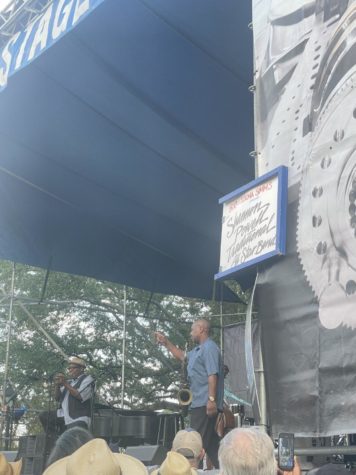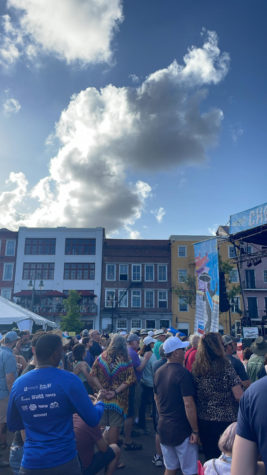OPINION | Tulane students should focus on local festivals this season

For most current Tulane University students, this spring offered – and will continue to offer – the return of classic New Orleans events that were previously unavailable due to COVID-19 accommodations.
Mardi Gras parades returned in late February after a two-year hiatus; Crawfest, the nation’s largest student-run festival, occurred on Tulane’s campus this past weekend.
Outside the immediate scope of Tulane students, festivity is returning to New Orleans, widening opportunities for New Orleans residents, visitors and Tulane students alike to enjoy, as fully as possible, the music, food and celebration that is characteristic of the city.
The festivals that take place in New Orleans vary in scale. Some music festivals, like the New Orleans Jazz & Heritage Festival, attract thousands to the city by hosting local and world-renowned artists.
Jazz Fest spans seven days over two weekends and lists hotels and travel packages on its website, advertising itself as a destination event. Ticket prices range from $50 to $1,700.
Others are smaller, locally-focused and completely free. French Quarter Festival, which took place this past weekend, is one of these.
French Quarter Fest is the “largest showcase of Louisiana music in the world,” presenting an impressive music lineup across five stages in New Orleans’s French Quarter and almost 100 food and beverage vendors.
While Tulane students may be attracted to the more well-known festivals and celebrations in New Orleans like Mardi Gras, Voodoo Music + Arts Experience, BUKU Music + Art Project and Jazz Fest, they should also give attention to events like French Quarter Fest that feature exclusively local music, food and drink.

All kinds of events are important to the New Orleans economy. Jazz Fest brings in around $300 million to the New Orleans economy, particularly to its travel, hospitality and tourism industries.
According to a University of New Orleans study, French Quarter Fest had an economic impact of $190 million in 2019 and resulted in nearly $15 million in tax revenue for state and local governments.
Beyond its revenue, FQF employs local organizations for all aspects of the festival. Food and drink tents at the event are all representatives of local businesses. Sanitation, stage, sound and security companies are all local and put money directly back into the New Orleans economy and the pockets of local residents.
Even those businesses that are not directly represented at FQF benefit from the event, given that festival-goers will likely walk around the French Quarter and stop at its shops, restaurants and bars.
French Quarter Fest is not the only event of this type.
“Festival Season” in New Orleans takes place from February until May, but the city holds approximately 130 festivals per year. At any time, there is an event to attend.
Upcoming festivals include Daze Between New Orleans, Jammin on Julia, Bayou Boogaloo, Greek Fest, Americana on Tap and French Market Creole Tomato Festival, among many more. Most of these festivals offer entry at a very low price or for free, removing barriers for visitors and residents to participate in local culture and enrich the local community.
Most Tulane students are out-of-state and may not be aware of the multitude of New Orleans events they have access to while living here.
Given that many of these events take place outside the Uptown area in which Tulane is located, students may have to do their own research to discover local events.
Many students come to Tulane and are excited to attend the big-name festivals and events that define the Tulane experience. However, it may take time and experience exploring the city to realize that there are events, parties and festivals that one may not be able to find anywhere else.
Other than awareness, though, there are few reasons that Tulane students should not want to attend these events; great food, world-renowned music and lively culture for little to no cost are just a streetcar ride or drive away.
Your donation will support the student journalists of Tulane University. Your contribution will allow us to purchase equipment and cover our annual website hosting costs.


